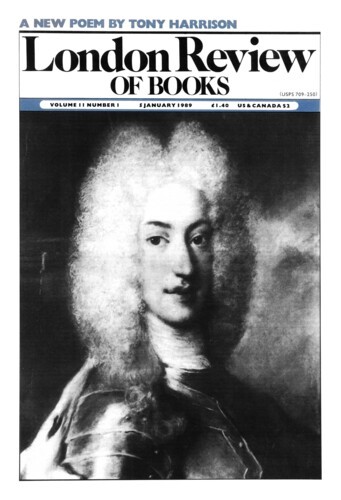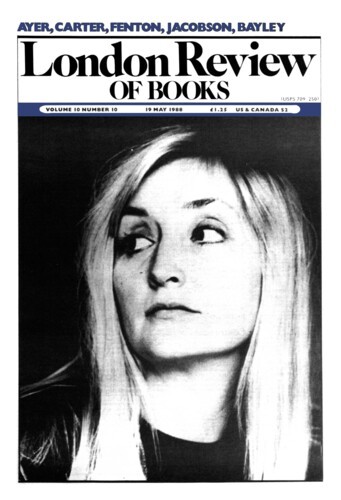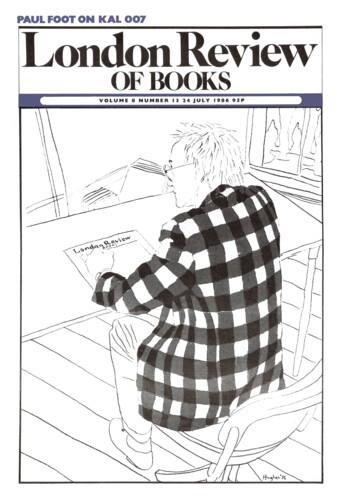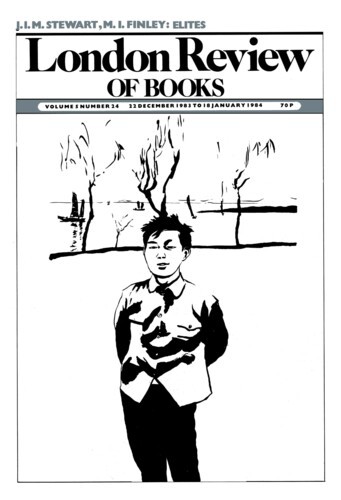Someone might go into the past
A.J. Ayer, 5 January 1989
Professor Hawking’s Brief History of Time thoroughly deserves the praise with which it has been widely received. With only one formula, Einstein’s celebrated E = mc2, which he could just as well have put into prose simply by saying that energy is the arithmetical product of mass and the square of the velocity of light, Hawking gives a more lucid account than any that has yet come my way of such arcane matters as quantum theory and its wave-particle duality, the general and special theories of relativity, the blending of space and time into a four-dimensional continuum, the ways in which physicists measure the age and structure of the universe, the ‘big bang’ with which it is thought to have started, the reasons for holding that it continues to expand, the shrinkage of stars into ‘black holes’.





